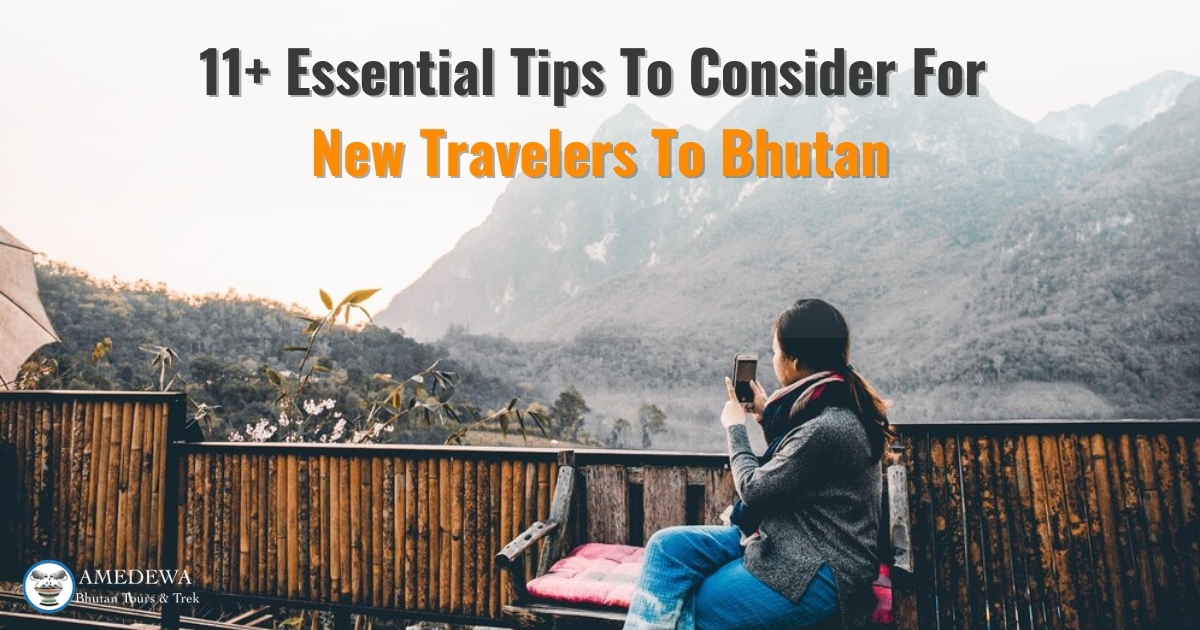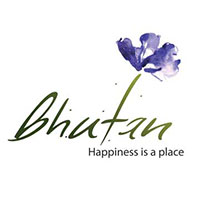Posted On: August 6, 2024 | By: adminadmin
11+ Essential Tips To Consider For New Travelers To Bhutan
The Land of the Thunder Dragon, Bhutan, provides a spiritually profound, breathtakingly beautiful, and culturally diverse experience. Known for its colorful festivals, breathtaking monasteries, and dedication to Gross National Happiness, Bhutan is a country tucked away in the Eastern Himalayas.
If you’re visiting this Himalayan nation for the first time, you should be well-prepared to maximize your experience. These crucial pointers can assist you in navigating the particulars of vacationing in Bhutan for new travelers, ensuring a respectful and unforgettable journey in one of the most alluring places on earth.
1. Handling Visa Protocols
Any visitor to Bhutan requires a visa, except for those who are citizens of Bangladesh, India, and the Maldives. A Bhutanese tour operator facilitates visas; therefore, it is important to thoroughly prepare ahead and coordinate with an authorized agency, like Amedewa Tours, to make sure all travel-related arrangements are made.
- Documentation: Verify that your passport will be valid for a minimum of six months after the desired length of stay.
- Application Process: Through your tour operator, submit the necessary documentation together with the visa application form.
- Visa Price: Your travel package usually includes the visa price.
2. Selecting Comprehensive Travel Packages
Choosing a holiday package that includes lodging, food, transportation, and a guide can help you make your way through the nation’s distinctive ‘High Value, Low Impact’ tourist strategy. Packages also include a minimal daily charge that is required to support Bhutan’s sustainable development.
- Customized Itineraries: Seek out packages that allow you to customize the daily activities to your liking.
- Skilled Guides: Make sure your trip includes competent guides who can share their knowledge of Bhutanese history and culture.
- Inclusive Services: Verify that the package covers all incidental expenses, attraction admission fees, and required licenses.
3. When to Go
Your experience can be greatly improved by choosing the right time to visit. The best seasons for pleasant weather and exciting festivities are spring (March to May) and fall (September to November). Though there may be weather difficulties, off-season months provide a more peaceful stay.
- Springtime: This season brings with it beautiful scenery and rhododendrons in blossom.
- Autumn: Take in the crisp sky and the renowned Thimphu Tshechu festival.
- Winter and Summer: Though they are less popular with travelers, both seasons provide special experiences like snow-capped peaks and verdant monsoon landscapes.
4. Being Aware of and Using Cultural Etiquette
Honor regional traditions by dressing modestly, particularly when visiting places of worship, and by using the customary salutations. Learn about social mores, such as proper conduct in public spaces and how to behave when attending religious ceremonies and festivals.
- Dress Code: When visiting monasteries and temples, wear long-sleeved shirts and knee-length slacks or skirts.
- Salutations: The customary salutation consists of a little bow and a closed fist in the stance of prayer.
- Behavior: Refrain from making loud noises or public shows of affection in places of worship.
5. Adherence to Restricted Area Regulations
Without certain permits, which are usually obtained through your travel operator, many areas of Bhutan are inaccessible. The ecology and genuine culture of Bhutan are protected in part by these limitations.
- Permit Requirements: Your tour operator,, who is tailored for new travelers to Bhutan, can arrange the extra permissions needed in some areas.
- Respect Boundaries: To save cultural landmarks and animals, follow all rules, and show consideration for off-limits places.
6. Readiness for Health and Wellbeing
Acclimate slowly to avoid altitude sickness, and drink plenty of water. Before leaving, check with medical specialists about the required vaccines and consider purchasing comprehensive travel insurance that covers medical evacuation.
- Altitude Acclimatization: To acclimate to the altitude, spend the first several days at a lower elevation.
- Nutrition and Hydration: To help your body acclimate, eat light meals and drink lots of water.
- Medical Kit: Always keep a basic medical kit with you, along with prescriptions for common illnesses like stomach problems and headaches.
7. Delighting in Bhutanese Food
Food in Bhutan is renowned for being spicy; tourists should try the national dish, Ema Datshi. Participate in the regional cuisine, which consists of red rice, fresh, organic produce, and traditional drinks like butter tea.
- Popular Dishes: Sample traditional fare like Phaksha Paa (pork with red chiles) and Jasha Maru (hot chicken stew).
- Dining Etiquette: As is usual in Bhutanese culture, eat with your right hand and remember to wash your hands before meals.
8. Developing Eco-Friendly Travel Routines
Engage in sustainable activities that complement Bhutan’s efforts to save the environment. This entails avoiding plastic as much as possible, boosting regional economies, and exercising caution around natural resources.
- Eco-Friendly Products: Bring your toiletries, bags, and reusable water bottles.
- Local Support: To help the community, make purchases of products and services from nearby companies.
- Conservation Awareness: To reduce your environmental effects, stick to the trails and rules that have been set.
9. Maintaining Connection
Remote locations lack dependable connectivity, in contrast to urban regions. Be ready for sporadic cell and internet service, and think about getting a local SIM card for better pricing and coverage.
- Internet Availability: Internet access is available in most hotels and cafés in Thimphu and Paro.
- Mobile Networks: For best connectivity, use a local SIM card from TashiCell or Bhutan Telecom.
- Offline Preparation: If network problems arise, download maps and travel applications for offline usage.
10. Taking Care of Money and Finances
The Bhutanese Ngultrum (BTN), which is equivalent to the Indian Rupee and accepted there as well, is the native currency. To prevent card problems, be ready to handle primarily cash transactions, particularly in distant places. Also, let your home bank know about your trip schedule.
- Cash Availability: Although ATMs are common in larger cities, they are not always dependable, so be sure you have adequate cash on hand.
- Currency Exchange: At banks or other approved currency exchange locations, exchange money.
- Credit Cards: It’s best to check in advance since certain hotels and stores may take credit cards.
11. Conscientiously Packing
While packing, consider changing heights and weather. Layered clothes, hiking boots with good support, sun protection, and all the health and hygiene supplies required for the rural environment are essentials.
- Layers of Clothes: Bring clothing that can be layered to adapt to changing temperatures.
- Footwear: For walks and walking excursions, pack cozy hiking boots.
- Essentials: Don’t forget to carry bug repellant, sunscreen, sunglasses, and a hat.
Extra Advice: Participate in Community
Bhutan’s greatest asset is its people. To improve your trip and give back to the community, interact with locals, pick their brains, and take part in events organized by them.
- Cultural Immersion: To get a firsthand look at Bhutanese customs, attend local celebrations and festivals.
- Volunteer Opportunities: Consider participating in community service initiatives as a way to give back to the neighborhood.
- Language Learning: You can improve your relationships with locals by picking up a few simple phrases in Dzongkha, the country’s official language.
Welcoming New Travelers To Bhutan!
Bhutan combines breathtaking natural beauty, a rich cultural legacy, and a dedication to sustainability to provide visitors with a singular and fascinating travel experience. If you consider these crucial tips, you will be well-prepared to make the most of your trip to this ethereal Himalayan nation. Every element of your journey, from being aware of visa regulations to adopting sustainable practices and local cultures, will make it an unforgettable experience.
Are you ready to travel to Bhutan? Make travel plans with Amedewa Tours & Trek right now. With their knowledge and attentive service, Amedewa ensures a flawless and remarkable Bhutanese experience catered to your interests and tastes. Don’t delay—your journey across Bhutan is waiting!





